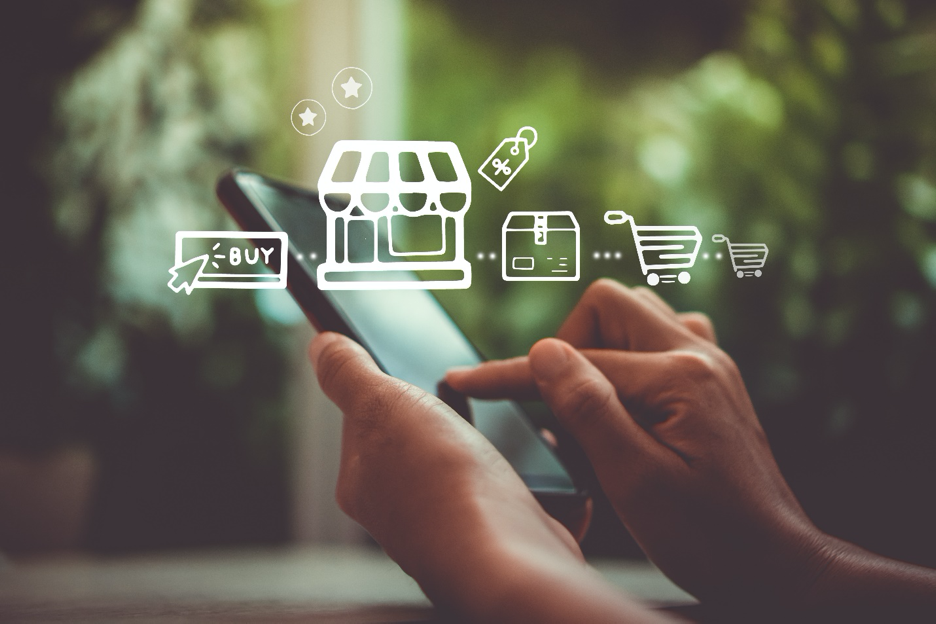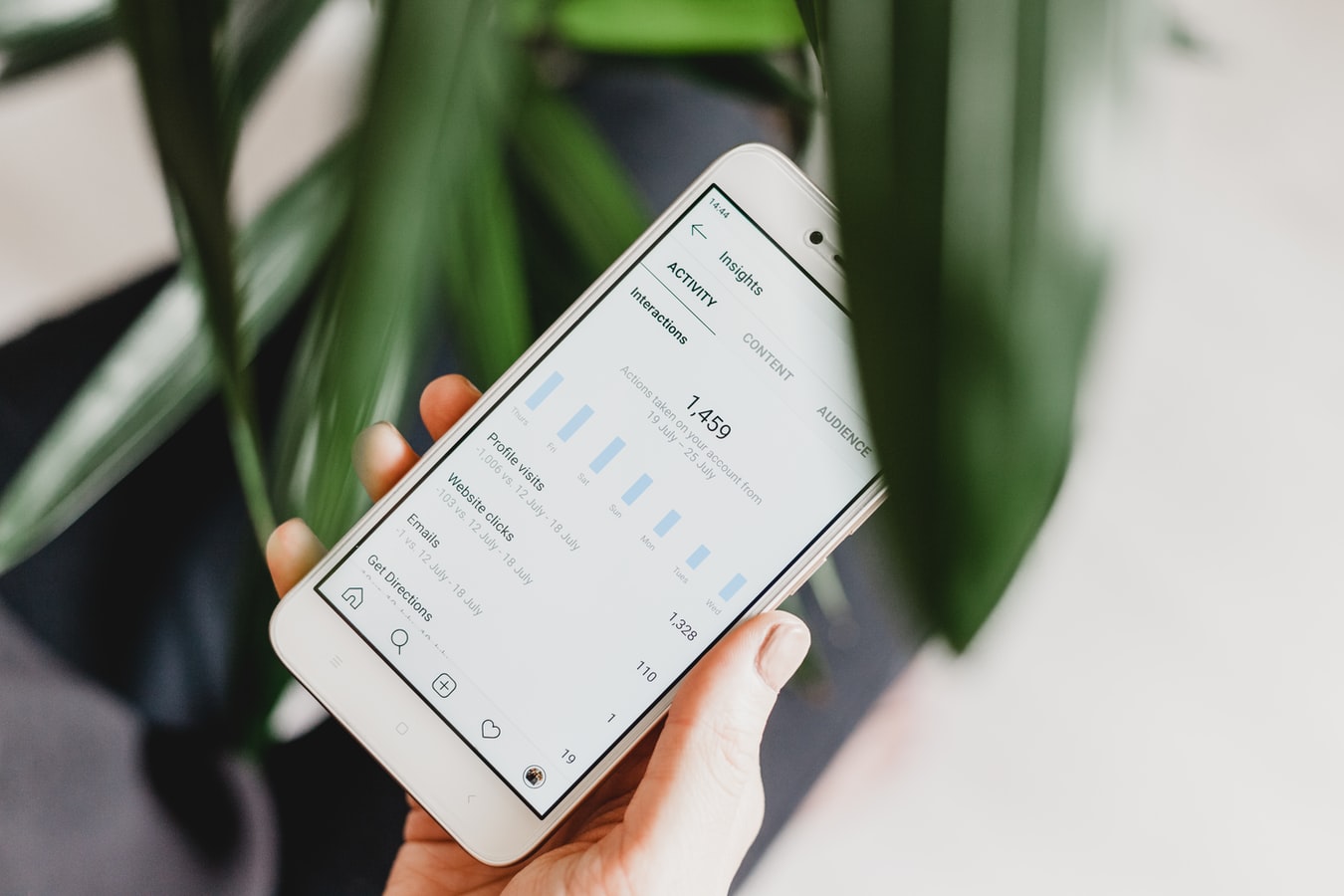
If you’re ready to take advantage of the online shopping explosion spurred by COVID, there are some things you need to know to get started.
Competition is stiff, sure. But literally, a third of the global population (2.7 billion people) actively uses Facebook every month. This means there is plenty of room for sellers to fill every imaginable need and niche.
Keep reading for a step-by-step guide on setting up a Facebook Page shop (not to be confused with Facebook Shops, a newer rollout that is just launching).
How to create a shop on your Facebook page
To set up a Facebook Page shop you must be an admin of your business page and have Manage Page permissions. Both your Facebook Page and your catalog must be in the same Business Manager. Finally, you must agree to Facebook’s Terms.
Here are the basic steps to setting up a Facebook Page shop—directly from the horse’s mouth:
- Go to Commerce Manager.
- Click Get Started to go to the Create Your Shop page.
- In the Start Setting Up Your Shop section, select Your Website. Click Get Started.
- In the Choose Your Business section, you’ll see a list of Facebook Pages you’re a Page admin on. Select the business you’d like to add your shop to. Click Next.
- In the Account Details section, provide an Account Name and select a Business Account. Click Next.
- In the Where People Can View Your Shop section, select where you’d like to create your shop. If you have an Instagram business profile and a Facebook Page, you can select both.
- In the Catalog section, select an existing catalog or create a new one and click Next.
- Look over your shop details, review and agree to the Seller Performance and Accountability Policies and click Create Your Shop.
 Once you’ve created your Facebook store, you’ll need to create a collection (for example, if you sell comic book action figures, one of your collections might be Marvel figures). Facebook allows you to create collections of 6 to 30 products.
Once you’ve created your Facebook store, you’ll need to create a collection (for example, if you sell comic book action figures, one of your collections might be Marvel figures). Facebook allows you to create collections of 6 to 30 products.
Next, you’ll need to choose a “featured collection” and customize the look and feel of your shop.
Once you’ve fine-tuned your shop, it’s time to publish it. This will make it available to the public. Facebook must review and approve your collections first, which usually doesn’t take more than a day or two.
Facebook Page shop vs. Facebook Shops
 If you’re new to the Facebook ecommerce game, you might be confused about the difference between a Facebook Page shop and Facebook Shops. Who can blame you with such similar (and not particularly creative) names?
If you’re new to the Facebook ecommerce game, you might be confused about the difference between a Facebook Page shop and Facebook Shops. Who can blame you with such similar (and not particularly creative) names?
- A Facebook Page shop allows you to display products on your Facebook Business page. When a customer clicks on a product, they’re given the option to check out on your site.
- Facebook Shops is a newer feature that allows you to create a “storefront.” It creates a better, more seamless experience for customers and the option of checking out without leaving Facebook.
Facebook Shops is a newer feature that Facebook has only recently begun to roll out. Sellers who previously had an Instagram Profile Shop and/or Facebook Page Shop will automatically convert to Facebook Shops.
For the rest of us, it’s sort of a “Don’t call us, we’ll call you” feature. In other words, you’ll have to wait for Facebook to send you an invitation of sorts. As Facebook puts it, “Before setting up your shop, you need to have received an email or notification that you can now use Facebook Shops.”
Another important thing to know is you can only sell physical products on Facebook Shops. It doesn’t currently support the sale of services or downloadables.
A few reasons to set up shop on Facebook
It may seem daunting to set up an online store on Facebook, especially if it’s your first such adventure. But it’s worth the effort, particularly in the age of COVID when there’s no telling when (or if) life will ever go back to normal as we knew it. Here are a few benefits of selling on Facebook:
 1: It generates leads and conversions.
1: It generates leads and conversions.
Selling on Facebook takes some mastery, but once you find that sweet spot, the leads and conversions will start rolling in. Unlike cold calls or email campaigns, social media lets you “eavesdrop” on comments, chime in with solutions, and participate in more organic conversations.
2: It builds brand awareness and customer loyalty.
Facebook and other social media platforms help you connect with existing customers in a way that just wasn’t possible years ago. Maintaining and growing brand loyalists is the goal of every company. But it takes work. You’ve got to publish regularly to keep your brand front and center. It’s worth hiring a dedicated social media person or finding a marketing agency to help with social selling and Facebook advertising.
 3: It helps you manage your reputation.
3: It helps you manage your reputation.
In our hyper-polarized climate, it doesn’t take much to offend someone. Only now people have the megaphone of social media to trash a company’s reputation at will. Reputation crises are especially common in ecommerce. An insensitive tweet, disgruntled employee, or service snafu is all it takes.
Ironically, the very medium people use to discredit your company can also help restore your reputation. Marketers on top of their game can slow down or even stop a potential reputation crisis by carefully monitoring Facebook and other social media accounts and engaging with customers.
Need help getting your Facebook store off the ground?
Setting up your Facebook Page shop is just the first step. You need the right strategy to effectively engage the community and generate conversions. Posting once a day won’t cut it.
If it all feels too overwhelming, National Positions can help. Our social media experts will optimize your Facebook business profile and generate custom content tailored to your brand’s message, values, and goals, as well as engage with your audience, create engaging ads, track your social media campaigns, and more.
Call us today at (818) 918-5188 or drop us a line to get started.